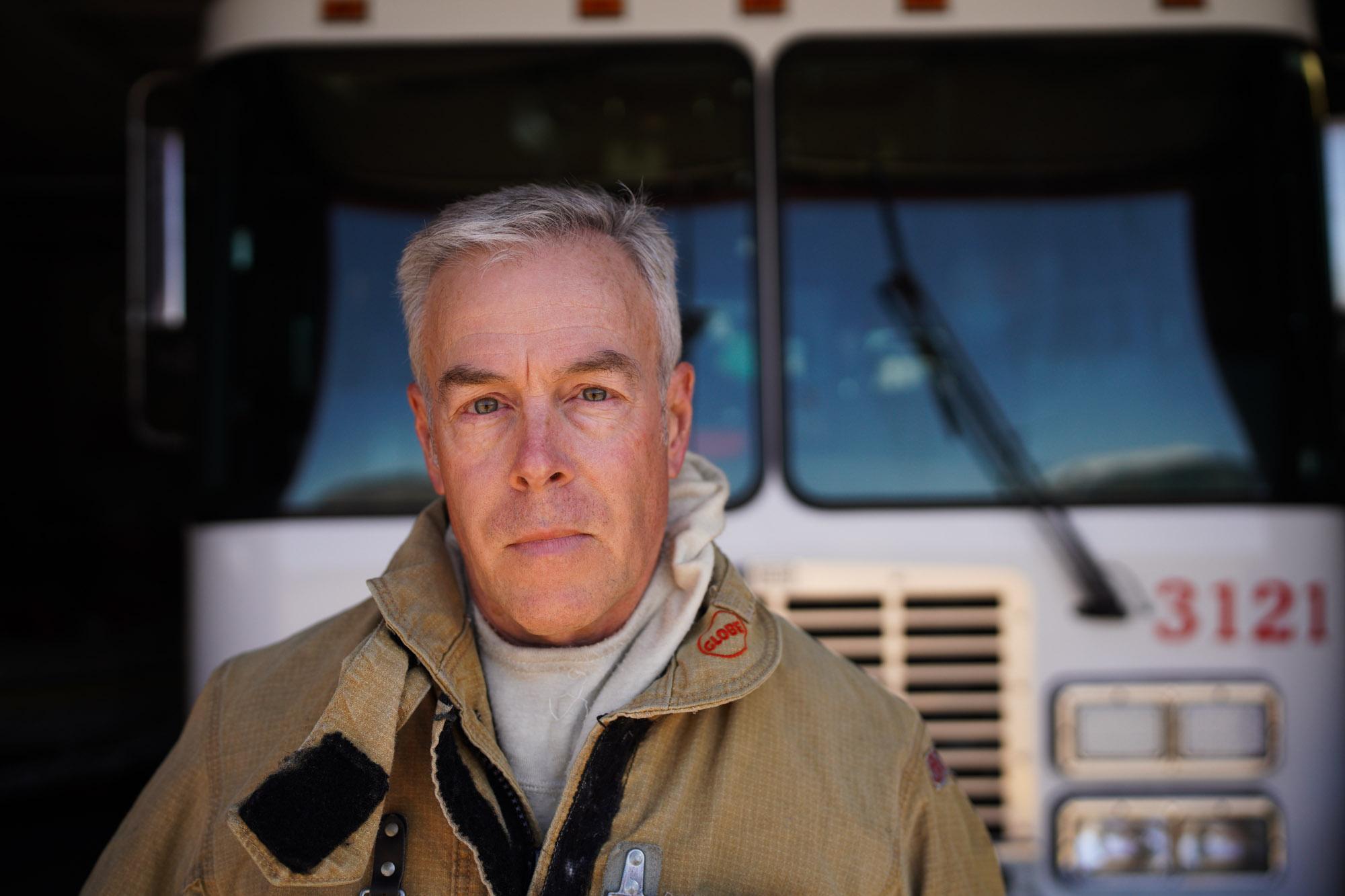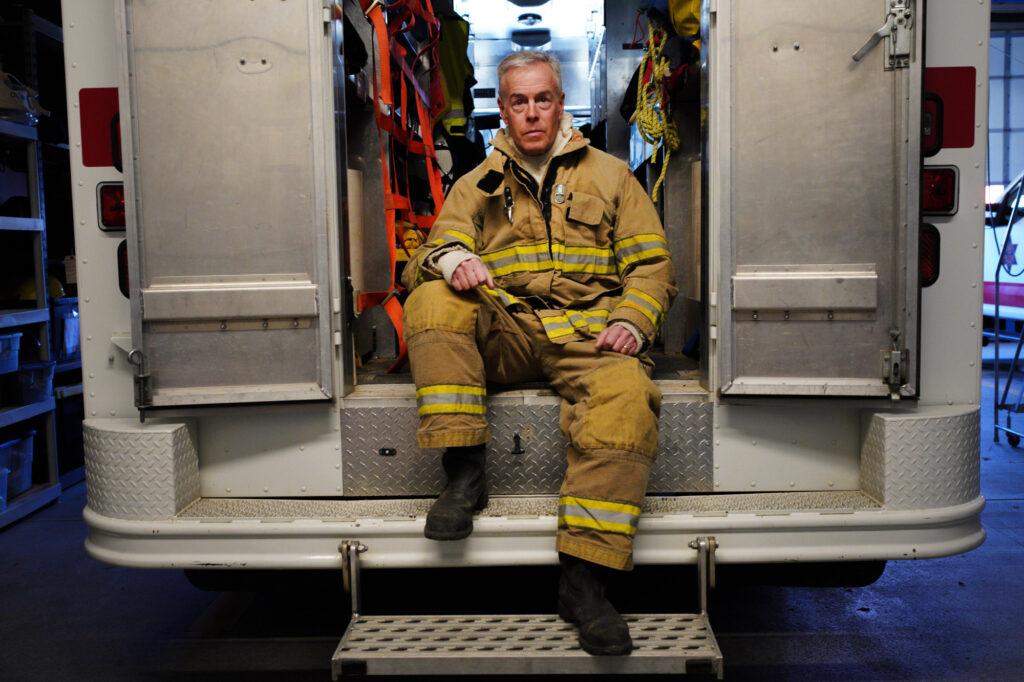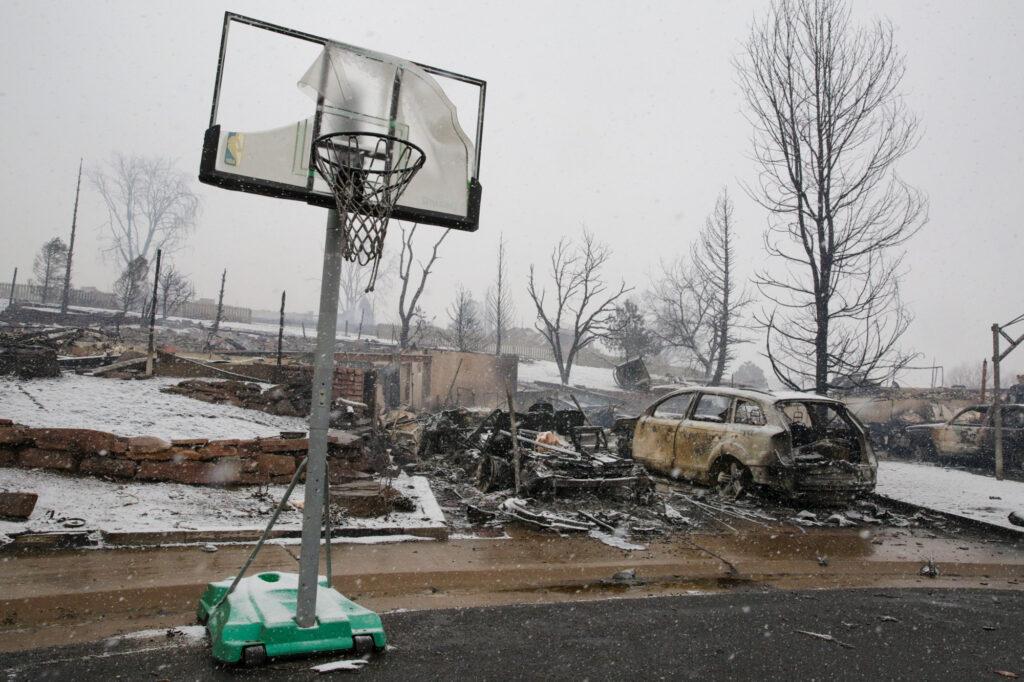
For over six years, Scott MacLaughlin has volunteered to risk his life for people threatened by dangerous fires. This December, he answered a call to fend off the blaze that would eventually burn his home to the ground.
When the Marshall Fire triggered evacuation orders for neighborhoods in Superior and Louisville, MacLaughlin was in a movie theater with his son. He’d made a promise that he’d take him to see the latest Spider-Man movie, and he missed the first emergency calls while trying to keep his word.
Their quality time ended once the news reached him. MacLaughlin bypassed roadblocks using his emergency firefighter plates and rushed home to toss on a spare set of firefighting gear.
By the time he was ready to help, a Westminster fire engine was attending to his neighbor’s house. It was already engulfed in flames, and the embers were spreading.
“I'd say there was probably pretty consistent 50 mile an hour winds blowing up the street,” MacLaughlin said. “The water stream, which usually can blow out a second story window, was just turning around on us.”
MacLaughlin, who normally works for an engineering company in Boulder, joined the fire engine, which was soon ordered to evacuate the street and focus on building containment lines in another neighborhood.
That night, another firefighter drove MacLaughlin to Erie, where his wife, Robin, was staying with his mother-in-law. It was there that the long road to recovery began.
“All I had was the clothes under my bunker gear and my bunker gear,” MacLaughlin said. “My wife pretty much just grabbed the dogs and a couple other things, but we pretty much had nothing at that point other than what we were wearing.”

Grieving lost memories and wrangling with insurance
About a month after the fire, MacLaughlin was staying at a friend’s cabin in Boulder’s Chautauqua Park. At that point, his family, which includes two local college students, was able to get by day-to-day thanks to generosity from fellow firefighters. In addition to lodging, colleagues in the fire community offered financial support and lent him a car.
“That was a big relief to me and my family and gave us the ability to go to the [Lafayette] disaster center and go to the store and buy us clothes,” he said.
Around this time, MacLaughlin also had to relive the loss of his house by working with insurance companies and government entities to itemize what was destroyed, a process that was often frustrating.
“I had a 1969 Chevy Camaro in my garage that I bought when I was in high school. Of course, [it was] completely totaled,” he said. “The insurers are saying, ‘Well, I need the VIN number off it.’ And I'm like, well, it's burned.’”
The family has also had to come to terms with losing things that insurance companies can’t reimburse.
“A lot of the kids' childhood memories, a lot of their artwork, all the little ceramic things they made in art class and brought home all their paintings,” MacLaughlin said. “Those are the things that I miss the most, along with their childhood photos.”
MacLaughlin referred to the stages of that process as “short-term” problems.

The family wants to rebuild, but will money allow?
In April, they started to become longer-term issues.
The family currently rents a house in Superior, where they can start replacing their belongings and settle in for the time being. Rebuilding is still their ultimate end goal, but making that a reality has proved complicated.
“It's probably gonna take about two years to rebuild a house, in this economy and market with the supply chain shortages,” he said.
The biggest hurdle for MacLaughlin and his family right now is figuring out what they can afford to start over again. Like many victims of the Marshall Fire, their insurance policies won’t cover the full cost.
MacLaughlin hopes to at least pull together enough for a similarly sized house. But because some of the rebuilding fees might come out of pocket, he said they might have to downgrade. MacLaughlin said they’ve hired a builder and are awaiting the new architectural plans. After that, it will likely take another year or two until they can move back into their old neighborhood.
Another peak fire season begins
While this happens, peak fire season in Colorado is beginning to rear its head.
MacLaughlin was on-site fighting the NCAR Fire in South Boulder in April, when the evacuation of thousands in Boulder’s Table Mesa neighborhood reminded residents of still-lingering memories from the Marshall Fire.
Still, MacLaughlin said returning to the address he called home for years is worth the risk. The memories are too important to give up.
“It's always stressful when at night, when you hear the 50 mile an hour winds much like what happened on Dec. 30,” he said. “We don't live in fear, but we're aware of it and we take seriously the red flag warnings.”
Colorado continues to face extremely dry and windy conditions, which are expected to worsen as summer approaches. The National Weather Service issued 16 red flag warnings in April, a single-month record.









